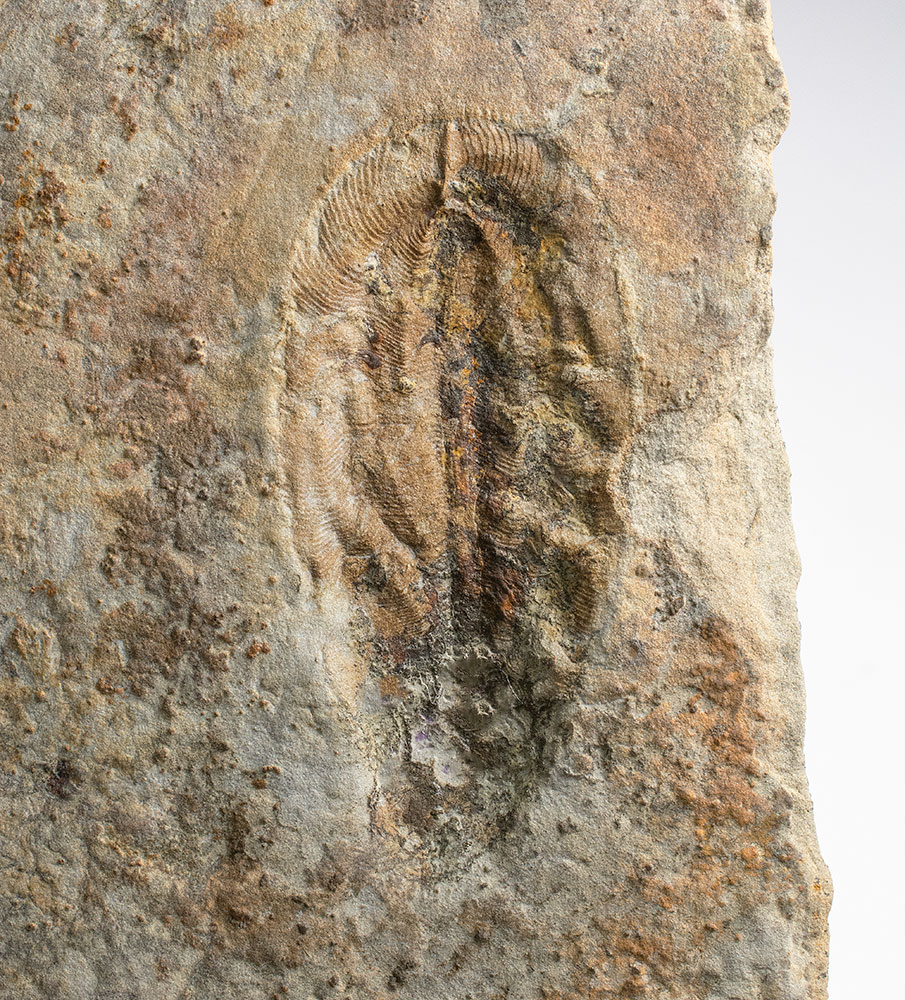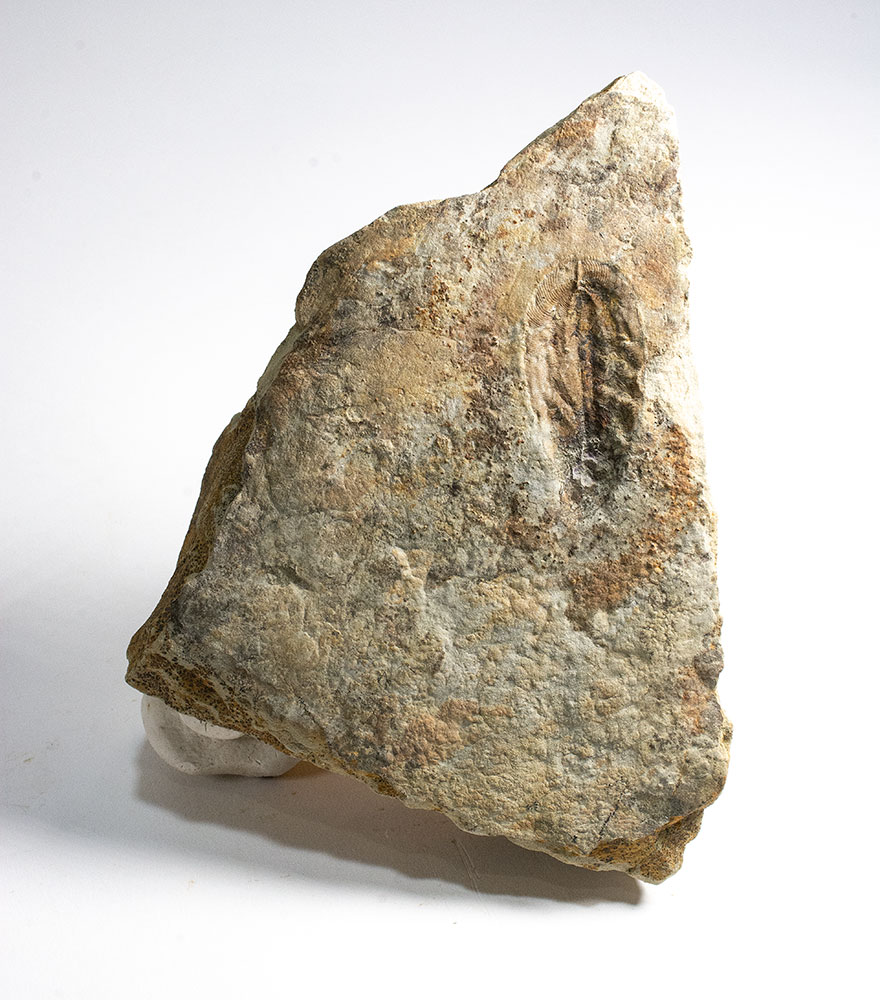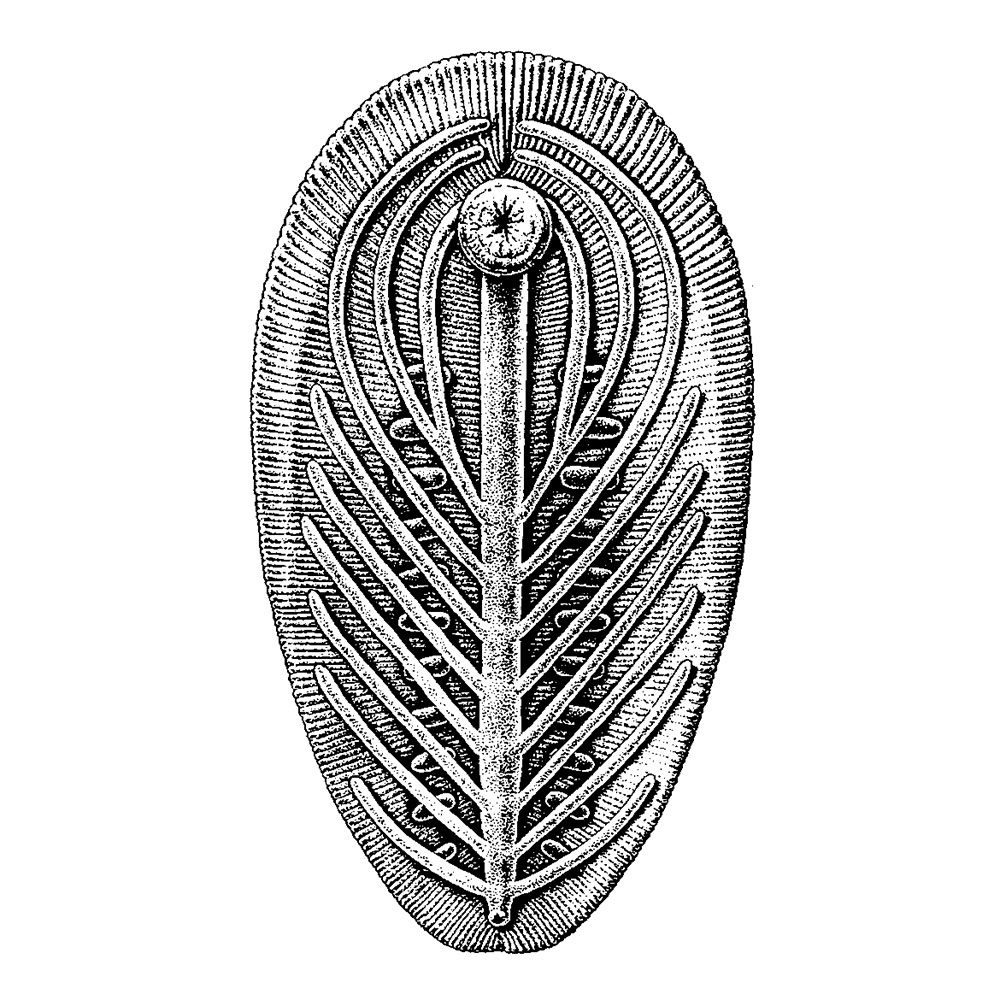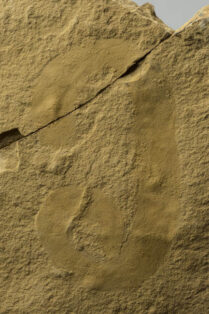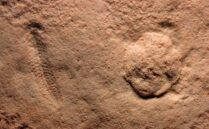Description
Dickinsonia costata
Ediacaran
Late Precambrian (Vendian)
Penega Formation
East Angelsk, White Sea, Russia
Very rare, 47mm Dickinsonia showing internal organs on 140mm slab.
This is a very rare example of a Dickinsonia with the internal organs visible. Typically, only the outer quilted surface is preserved, but here the internal anatomy is preserved as an impression. For a discussion of these specimens see:
(PDF link) Dzik, J. Ivantsov, A.Yu. 2002. Internal anatomy of a new Precambrian dickinsoniid dipleurozoan from northern Russia. Neues Jahrbuch für Geologie und Paläontologie, Monatshefte
When people think about the Ediacaran-type animals, they picture Dickinsonia in their minds. Paleontologists are still unsure of Its relationships to other groups and it disappeared by the end of the Vendian Period. It may belong to a whole kingdom of early animals separate from all others and yet its body nearly shows the complete bilateral symmetry of phyla we know including the Chordata.
The Vendian Period spans about the last 110 million years of the Proterozoic Eon from about 540 to 650 million years ago. It is during this time that soft-bodied, macroscopic life appeared. By the end of the Vendian the supercontinent, Rodinia, which formed from the collisions of the major land masses approximately 1.2 billion years ago, had started to fragment into continents that would reconnect at the end of the Paleozoic Era over 300 million years later.

